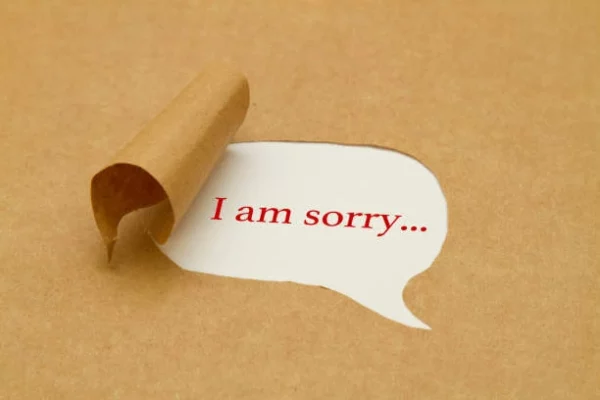Divorce vs Separation: Note the Difference And Similarities Now.

In this post, we will be looking at divorce vs separation. After reading this article, you’ll be able to understand the great differences between separation and divorce.
Most writers use divorce and separation interchangeably when they want to describe couples who are not living together for one reason or another.
Those writings have plunged you more into the pitch of confusion about divorce vs separation, and today you are seeking to know what the two stand for as well as the similarities and differences.
I have good news for you: in 5 seconds, you will be cleared in that regard. Let’s dive in.
Divorce vs Separation: The Differences and Similarities.
Before looking at the differences and similarities between separation and divorce, let us understand what divorce means and what separation also means.
What Is Divorce?
Divorce is a legal action that permits two couples to terminate their marriage relationship. Divorce can also be known as the dissolution of marriage, and it is the legal action that ends a marriage.
A husband and a wife can decide that they can not live again as a couple anymore, probably because of abuse, infidelity, incompatibility, etc., and one of them can file for divorce.
The divorce begins with a petition from one of the spouses asking the court to dissolve their marriage. The petition must include:
- The reason for divorce (legal).
- Confirmation that one or both of the spouses comply with the state’s residency requirements for divorce.
- Must be ready to provide any other statutory information required by the state.
Divorce can also be a contested divorce or an uncontested divorce.
A contested divorce is a type of divorce where the two parties involved find it hard to agree on measure issues and because of that, they will depend on the court for the final judgment.
Couples go through a contested divorce when they find it hard to determine how their assets, finances, or housechild custody can be determined.
And the truth is that whether you are divorcing your partner through a contested or uncontested divorce, it is not easy to be separated from your spouse.
Simply put, if a couple disagrees regarding how to share their asset, child custody, and other things, they go for a contested divorce.
Uncontested Divorce Means:
An uncontested divorce occurs when two parties involved are not fighting or relying on the court’s orders about the terms of separation or the divorce itself.
This kind of divorce will arise when the divorcing couples agree in writing to amicably resolve the issues between them without going to court to contest it.
Uncontested divorce, though not also good, is better and easier than a contested divorce.
What Is Separation In Marriage?
You can not talk about divorce vs separation without also knowing what separation means. So, what is separation?
Separation in marriage means when parties are living under a different roof and are not legally separated. People often see separation as a red flag that divorce is imminent.
However, separation is not divorce, and it doesn’t always lead to a divorce. Many couples have seen their marriages become stronger, though statistics say it is 85% out of 100.
In some circumstances, couples will need to take a break in their relationship, to enable them to seek out things and trash some matters in their marriage and also seek some marital separation advice from the therapists.
That is purely different from a divorce and should not be seen as one.
Types Of Separation:
There are three types of separation:
- Trial.
- permanent
- And legal separation.
Trial Separation: This is when you and your better half need a break in your marriage. The game is to live apart for some time and consider whether you will reconcile or go on with the divorce.
Having a trial separation will be a good option for you if you and your partner hope to reconcile soon, but remember to write an informal agreement concerning the rules of separation.
Permanent Separation:-
Permanent separation happens when couples choose to live apart indefinitely without any plan or intention to reconcile.
It marks the very end of the marital relationship. It is usually accompanied by legal proceedings that make the separation formal.
The arrangement entails dividing your assets and responsibilities, separate residences and there may also be legal agreements regarding support, child custody and other financial matters.
Legal Separation: Being legally separated from your spouse means that you and your spouse are not legally married, but that does not mean that you are divorced as well.
This starts when one of the partners files a petition in family court to grant them a permanent separation. Couples choose this as an option for divorce. However, you can still divorce after being legally separated.
Divorce vs Separation: Note the Difference And Similarities Now.
1) Separation Is Not Divorce:
From my earlier description of divorce and separation, you will find out that one of the greatest differences between divorce vs separation is marital status.
once you are divorced, your marital status will change immediately; you will no longer be seen as married, and you can remarry.
Separating from your partner won’t change your marital status, though you are not living under the same roof anymore. And it also means that you can not remarry.
2) You Still Have Chances To Reconcile:
Another thing to note about divorce vs separation is that separated couples still have ample opportunities to reconcile with their partner.
Because separation is just about taking a break to see if things can work out again: that presents a lot of chances for the couples to make up for their difference and come back together again.
Divorce does not present that type of opportunity for reconciliation. Once the judge gives a verdict for divorce, the chance of reconciliation has been lost completely.
It is therefore imperative that you consider everything about divorce vs separation before making your decisions.
3) You Are Still Entitled To Some Marital Benefits:
With just legal separation, you will still enjoy some marital benefits like pension insurance benefits, health care, unemployment benefits, and social security benefits.
These benefits are most relevant in old age because they will help you remain afloat when things are not going well.
These benefits are no longer available when you are divorced. This is one of the reasons people choose separation to divorce and it is also one of the best disparities between divorce vs separation.
4) You Remain Part Of The Decision Makers:
Divorce puts everything to a stop. Once a pronouncement is made by the judge, your legal rights as the spouse cease. Your decision-making capacity as a partner automatically stops.
However, legal separation still provides retention of such powers to the separated spouse. At least you can still make some important financial and medical decisions in your marriage because you are still seen as the next of kin.
5) Property Rights:
Being divorced will strip you of every right you had in your marriage while you were still married. For example; it will take away your decision-making rights.
The worst of it all is that you will also lose the rights that protect the spouse’s rights over the assets and properties.
Separation protects all those rights and privileges of spouses and makes sure what you deserve as the spouse gets to you upon the death of the other partner.
6) Liabilities And Debts:
If you are only separated and not divorced, then you will also share in the debts and liabilities of your marriage as a couple.
When you are divorced, you are completely free from the debts, as they are handled during the dissolution process.
Should You Consider Divorce Instead Of Separation?
Now that you have seen the difference between divorce vs separation, you are so confused about which one to choose. Well, the choice is yours.
It depends on what you want or what your religion or culture permits. I am aware that some cultures permit separation instead of divorce, so find that out before you make your choice.
Meanwhile, understand that separation does not necessarily end a marriage, though it can lead to divorce. Separation is reversible, but divorce is not.
What Happens If You Separate But Never Divorce?
When you are separated but not divorced, you will continue to maintain your legal status as a married couple. That means you may still be backed by certain legal obligations to each other, like financial support and property rights. But that depends on the binding law in your jurisdiction.
You may also retain some benefits of being married, like tax benefits or health insurance coverage. However, you are typically staying apart from each other and may also have your own relationships and households.
While you are still legally married, you are free to go into other romantic relationships if you both agree. It is important that you consult legal professionals to know what to do in such situations.
In Conclusion:-
There are visible differences when you are considering divorce vs separation, and I have described the differences here. Take your time to read this post to learn about the differences before making your final choice.
But, understand that separation is different from a divorce, that separation is reversible, and that you still retain some marital rights when you are separated, which is not so when you are divorced.






